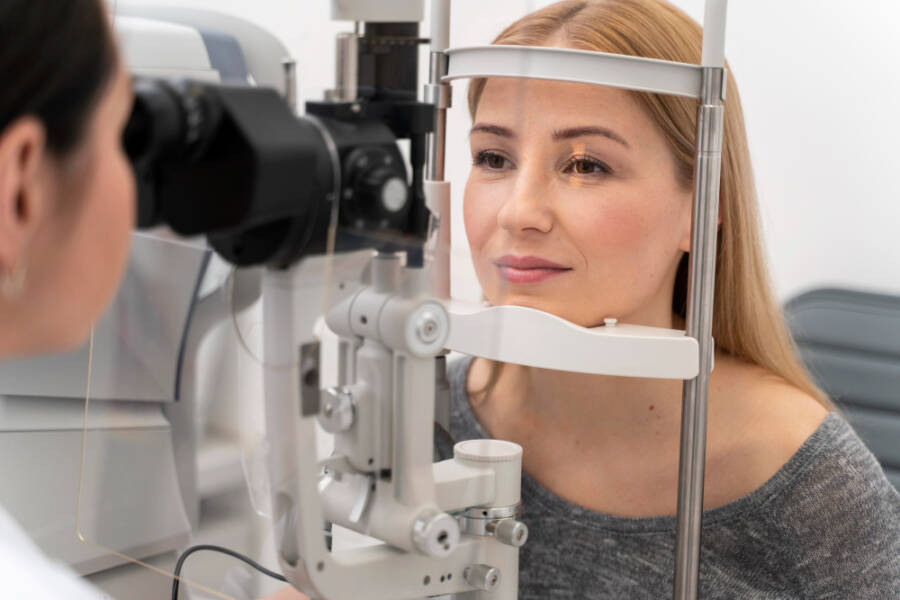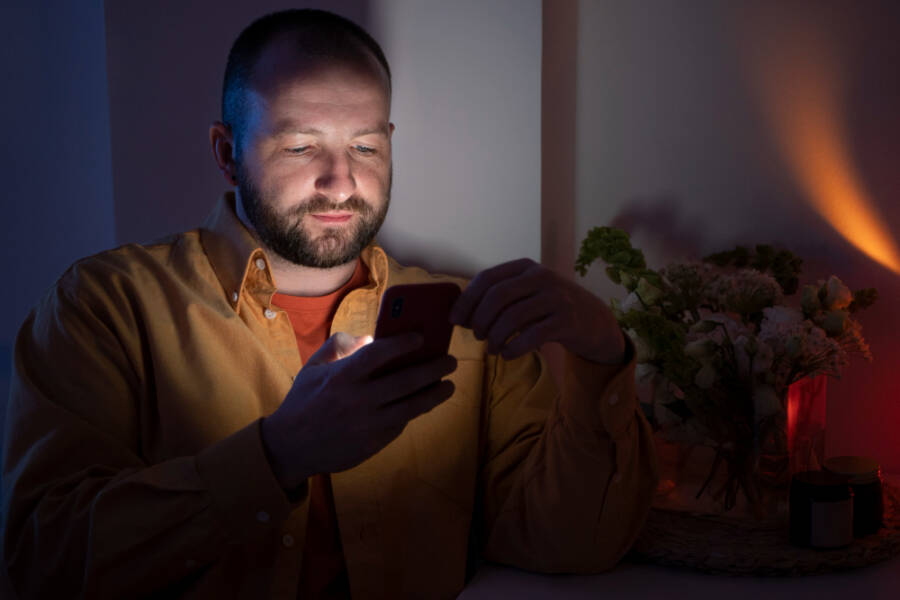According to data from the World Health Organization (WHO), currently, around 285 million people in the world have impaired vision. In Brazil alone, the 2010 Demographic Census identified more than 35 million inhabitants with some degree of visual difficulty.

In the United States, the numbers are equally alarming. According to data provided by the Centers for Disease Control and Prevention (CDC), approximately four in 10 adults are at high risk for vision loss. However, the most common eye diseases — such as myopia, hyperopia, astigmatism, presbyopia, cataracts, glaucoma and diabetic retinopathy — can be treated and, in many cases, prevented.
To demystify commonly held facts about eye health and contribute to alleviating these indicators, ophthalmology experts commented on the common beliefs that people have about vision.
Light from screens is harmful to the eyes
False: While some research has found that exposure to light from screens can damage the retina and potentially cause vision problems over time, no solid evidence has confirmed that this happens with typical exposures in humans, according to Joshua Ehrlich, assistant professor of Ophthalmology. and Visual Sciences at the University of Michigan, in the United States. There is also no evidence that wearing blue light blocking glasses improves eye health.
But screens can harm vision in other ways, including causing dry eyes, according to Xiaoying Zhu, clinical professor of optometry and lead myopia researcher at SUNY College of Optometry in New York City.
— When we look at a screen, we simply don’t blink as often as we should and this can cause eye fatigue and temporary blurred vision — she says.

Reading a book or using an electronic object at close range is harmful
True: Our eyes shouldn’t focus on objects close to our face for long periods of time, recommends Zhu. When we do this, especially as children, it encourages the eyeball to stretch, which over time can cause myopia.
To help reduce eye strain, experts recommend following the 20-20-20 rule: every 20 minutes of close reading, look at something at least 20 feet away for at least 20 seconds.
Reading in the dark can worsen your vision
False: However, if the lighting is so dim that you have to hold your book or tablet close to your face, this can increase the risks mentioned above and create eye strain, which can cause pain around the eyes and temples, headache and difficulty concentrating. But these are usually temporary symptoms, explains Zhu.
Wearing sunglasses makes a difference
True: There’s a reason why experts say not to look at the sun. Excessive exposure to ultraviolet A and B rays from sunlight can cause irreversible damage to the retina, according to Ehrlich. Additionally, it can also increase your risk of developing cataracts.
Too much exposure to ultraviolet light can also increase your risk of developing eye cancer, explains Ehrlich. Wearing sunglasses, glasses, or contact lenses that block UV rays can offer protection.
It’s bad to dive with your eyes open without protection
True: Heat increases the temperature of pool water. And this makes the environment more conducive to the proliferation of bacteria that cause conjunctivitis. Therefore, ophthalmologist Marcia Beatriz Tartarella, director of the Society of Pediatric Ophthalmology of Latin America, recommends simple precautions for bathers: avoid opening your eyes underwater.
Taking a break from wearing glasses can stop your vision from getting worse
False: Some patients who need glasses tell Safal Khanal, assistant professor of Optometry and Vision Science at the University of Alabama at Birmingham, that they don’t wear glasses all the time because they think it will worsen their condition. The ophthalmologist warns that this is not true and advises that if you need glasses, you should wear them.
Carrots are good for your eyes
True: Although a diet full of carrots will not provide perfect vision, some evidence suggests that the nutrients in them are good for eye health. A large clinical trial, for example, found that supplements containing nutrients found in carrots, including antioxidants such as beta-carotene and vitamins C and E, can slow the progression of age-related macular degeneration.
— Following a diet rich in antioxidants does not necessarily prevent the occurrence of eye diseases, but it can be particularly useful for people with early macular degeneration — explains Ehrlich.
Worsening vision is an inevitable part of aging
False: Most causes of vision decline in adulthood — including age-related macular degeneration, cataracts and glaucoma — are preventable or treatable if caught early, says Ehrlich. If your vision is starting to decline, don’t dismiss it as just aging. Seeing an ophthalmologist immediately (or regularly, every year) will give you the best chance of avoiding these conditions, he indicates.
TechBusinessHQ is a platform about business insights, Tech, News, SEO, 4IR, digital transformation, AI, Blockchain, Cybersecurity, and social media for businesses.
We manage social media groups with more than 200,000 members with almost 100% engagement.







